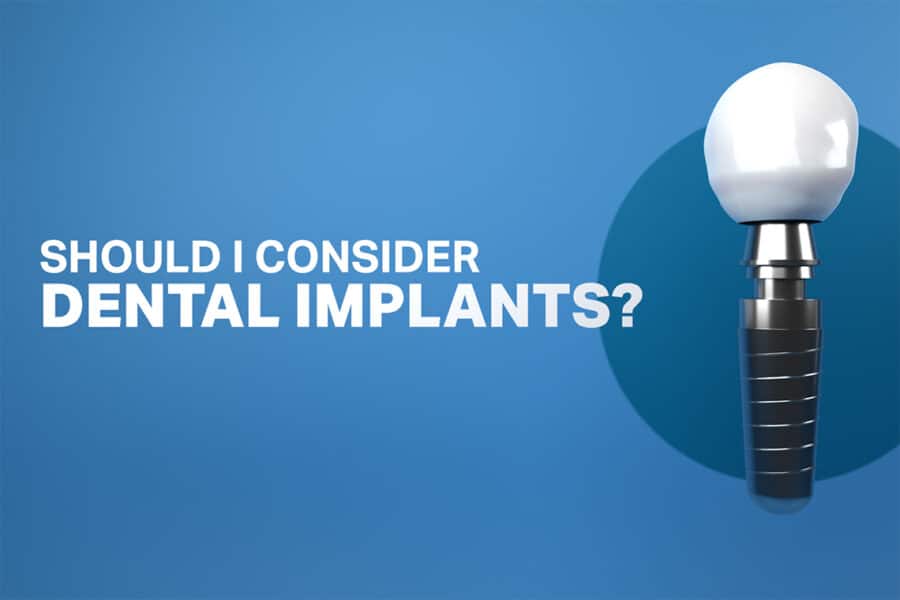Thanks to dental implants, you can now replace missing teeth and have a healthy smile with stable chewing ability. Dental implants are small titanium posts that are surgically placed within the jawbone. These posts and your bone fuse together, making the implant stable enough to support permanently placed false teeth called dental prosthesis such as crowns, bridges, and over-dentures.
Your dentist will refer you to a periodontist that will design an implant treatment plan to meet your needs.
What are some common reasons for implants?
Implants can replace single teeth that have been lost due to injury, gum disease, or severe tooth decay. The implants act as a base on which your restorative dentist places a lab-designed crown that looks just like your own teeth. Because implants fuse to jawbone like natural tooth roots, they look and feel like natural teeth. They can be cleaned similarly to natural teeth with brushing and flossing.
Multiple missing teeth can also be replaced with implants by using them to fabricate bridgework, which is a prosthetic that is a group of fused crowns that are secured to the implants. Implant-supported bridges can replace as few as two teeth or an entire arch, which means you can finally eliminate removable partials and dentures.
For patients who have dentures that do not fit properly and are loose or uncomfortable when chewing or speaking, implants can help to stabilize them as well. Implant-supported overdentures are made in coordination with implants to secure together similarly to a ball and socket. Although dentures are removable, they ‘click in’ to the implants when worn so that your denture stays in place and allows for better chewing. Having stable dentures also allows you to speak and laugh without worry.
Your implant surgeon will help you understand and plan which type of implant procedure is best for you.
How long do implants last?
With proper maintenance, implants can last a lifetime! However, proper maintenance is the key to their longevity. Good oral hygiene and a healthy lifestyle can both help you keep your implants healthy. Follow-up visits with your restorative dentist can also ensure that your implants are staying healthy.
Good oral hygiene is just as important to your new implants as it is to your natural teeth. While implants cannot decay like teeth, they can be vulnerable to the harmful bacteria that cause gum disease. The way to reduce this risk is to practice good oral hygiene every day as advised by your dental professional.



